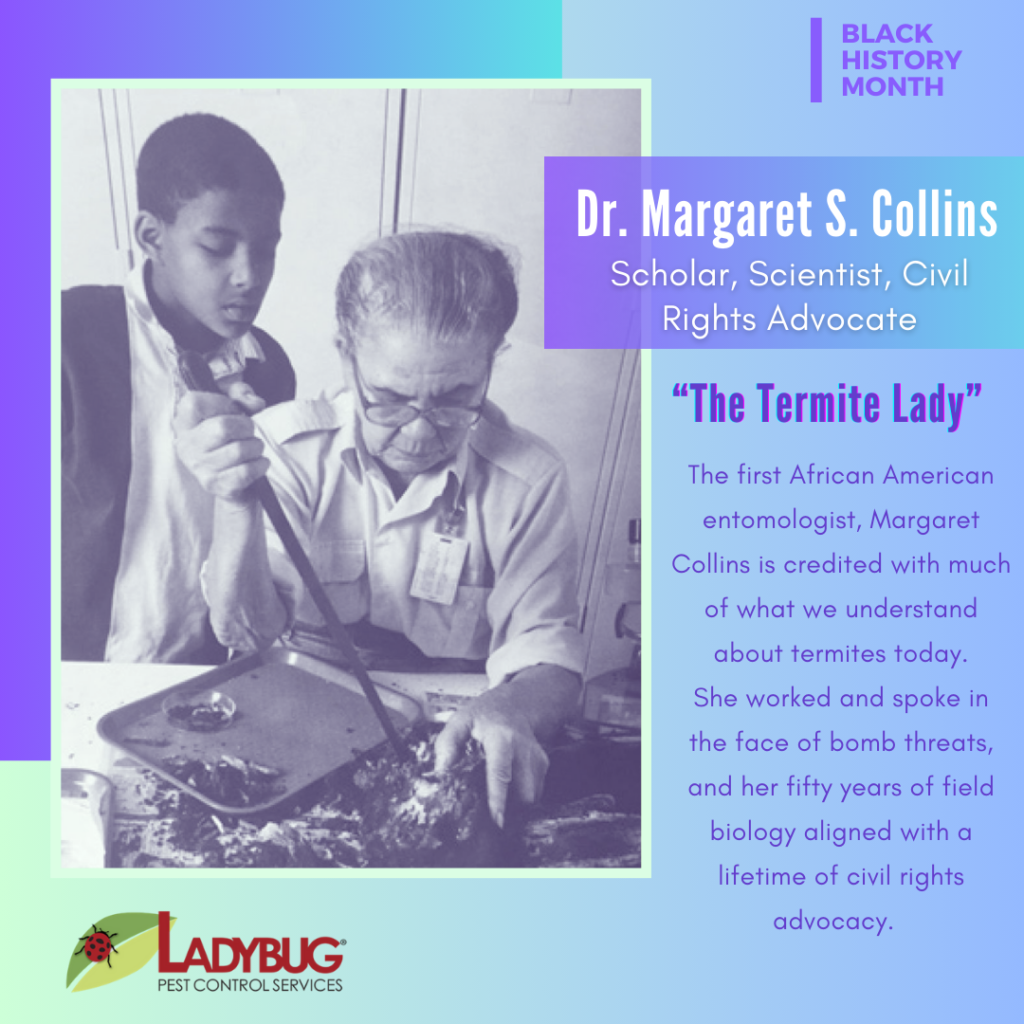
Dr. Margaret S. Collins: “The Termite Lady”
Dr. Margaret S. Collins left an enormous legacy in both scientific research and in Civil Rights. She was the first African American woman to earn a doctorate in entomology and the third to earn a doctorate in Zoology. Credited with much of what we understand about termites today, she earned the nickname “The Termite Lady.”
A scholar from childhood, Collins graduated high school at age 14. After earning her PhD, she became a professor at Florida A&M University and later became a research associate at the Smithsonian, as well as president of the Entomological Society of Washington. Across the span of 50 years, she continued her field research, which was her primary passion despite sexism and racism early in her career. The specimens she collected during her field research became the Collins Collection at the Smithsonian Museum of Natural History. As she grew older and experienced health problems, Collins still continued her field research, which led her to co-discover a new species of termite in 1989.
She was also a volunteer driver during the Tallahassee Bus Boycott, which was a key demonstration against segregation and ultimately led to the Supreme Court ruling that segregation on city buses was unconstitutional. Collins’ involvement with the Civil Rights Movement led to her being tailed by the FBI, and there were even bomb threats for her scholarly talks. Still, she pursued her passion in both the realms of science and social equality. She organized a symposium for the American Association for the Advancement of Science on Science and the Question of Human Equality in 1979, which became a book.
This Black History Month, we celebrate Margaret S. Collins as a trailblazing African American woman scientist, a dedicated field researcher, and as a civil rights activist. To learn more about her life and work, check out these articles and sources below:
- Margaret S. Collins, Pioneering Entomologist (JStor)
- Margaret Collins: Scholar, Civil Rights Activist, and Mentor (Smithsonian)
- A Legend in Termite Field Biology (Smithsonian)
- Selection of her Field Notebooks (Smithsonian)
- The Story of the Tallahassee Bus Boycott (Florida State University)
- 1982 Review of Science and the Question of Social Equality
- Remembering Dr. Margaret Collins, “The Termite Lady” (Pest Management Professional)
- Margaret S. Collins (Wikipedia)
- Florida Dampwood Termite (PestWorld)
